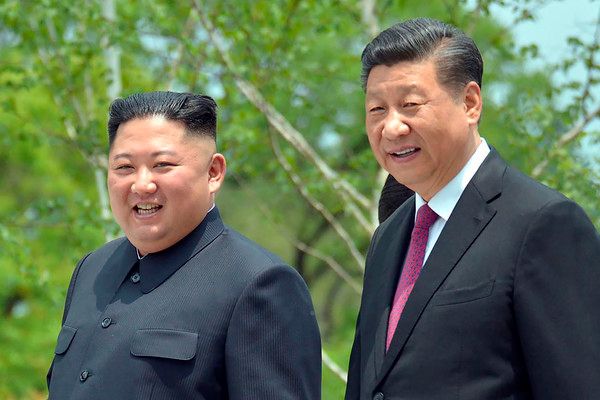China’s Exports to N. Korea Rise Sharply for Second Month

The Lede: China's exports to North Korea saw a sharp increase in March for the second consecutive month, according to official data released by China's customs authority. The rise comes amid North Korea’s attempts at an economic rebound after being hobbled by strict COVID-19 controls over the past few years. The trade interruptions led to food shortages across the country.
What we know:
- Data released by China's General Administration of Customs showed that China's exports to the isolated country increased by 141.7% year-on-year in the last month. This comes after a significant surge of 161.5% was observed in January and February combined, Reuters reported.
- The most valuable commodity North Korea imported from China was rice, at a value of $22 million. This was closely followed by artificial wigs, which amounted to approximately $8 million, and tobacco, valued at $7 million.
- At a press conference at the Ministry of Foreign Affairs in Beijing last month, China's foreign minister said through "strategic leadership," the relationship between China and North Korea "has entered a new historical period... of cooperative relations."
The background: China and North Korea have a longstanding economic relationship dating back to the Korean War. Prior to the pandemic, over 95% of North Korea's total trade was conducted with China. But as North Korea imposed strict lockdown measures, trade between neighboring countries declined drastically, plummeting around 90% in 2021 from 2019 levels. According to reports, while North Korea allowed certain imports to enter by sea, evidence suggests that authorities would enforce a quarantine of several months amid concerns over the coronavirus. In April 2022, North Korea resumed railway imports from China, signaling a potential new phase in its approach.
Even before the pandemic would exacerbate the crisis, North Korea had been facing severe food shortages for many years from a combination of natural disasters, economic mismanagement and international sanctions.
In recent years, the relationship between China and North Korea has become more complicated. North Korea's continued development of nuclear weapons and missiles has raised concerns in China about regional stability and security. While China traditionally has been North Korea's closest ally and trading partner, it has also supported international sanctions against the neighbor in response to its nuclear weapons program.
Likely outcomes/Takeaway:
- The recent swell in trade, as well as political rhetoric, indicates that China remains an important ally of North Korea. This surge in exports could potentially lead to relief for North Korea's food shortages and support its economic recovery. It could also signify a strengthening of the alliance between China and North Korea, as the two countries have traditionally had a close relationship.
- But the nuclear weapons program of North Korea could further continue to complicate the relationship between the nations. The proximity of North Korea's nuclear test site to the Chinese border poses a major concern. In the event of a nuclear test, China could face the risk of radiation leakage and earthquakes. For China, North Korea's possession of nuclear weapons creates the possibility of a ripple effect, with countries like South Korea, Japan and Taiwan experiencing rising public support for acquiring their own nuclear weapons.
Quotables:
- “The friendship between North Korea and China, which has a long history and tradition, will continue to be maintained under the wise leadership of the Supreme Leaders (Suryeong) of the two parties and two countries, developing further and responding to the needs of the times.” – extract from The Rodong Sinmun October issue, published under the Workers’ Party of Korea.
- “China and North Korea are friendly neighbors sharing mountains and rivers. In recent years, under the strategic leadership of the top leaders of the two countries, China-DPRK [the Democratic People’s Republic of Korea] relations have entered a new historical period and continued to move forward.” – Mao Ning, a spokeswoman for the Chinese Foreign Ministry.
Good Reads:
China Relations Key to Situation in North Korea (the Diplomat)
China’s new ambassador to North Korea takes up post (the South China Morning Post)
North Korea Is Becoming an Asset for China (Foreign Affairs)
